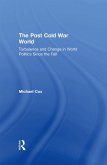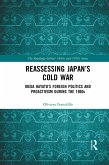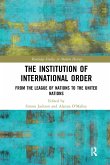The main tide of international relations scholarship on the first years after World War Two sweeps toward Cold War accounts. This book examines a past that ran concurrent with the Cold War and interacted with it, but which can also be read as separable: Washington in the first years after the Second World War, and in response to that conflagration, sought to redesign international society. That society was then, and remains, an amorphous thing. This scholarship, centered on the Cold War as vortex and a reconfigured world economy, is rife with contending schools of interpretation and, bolstered by declassified archival documents, will support future investigations and writing.








